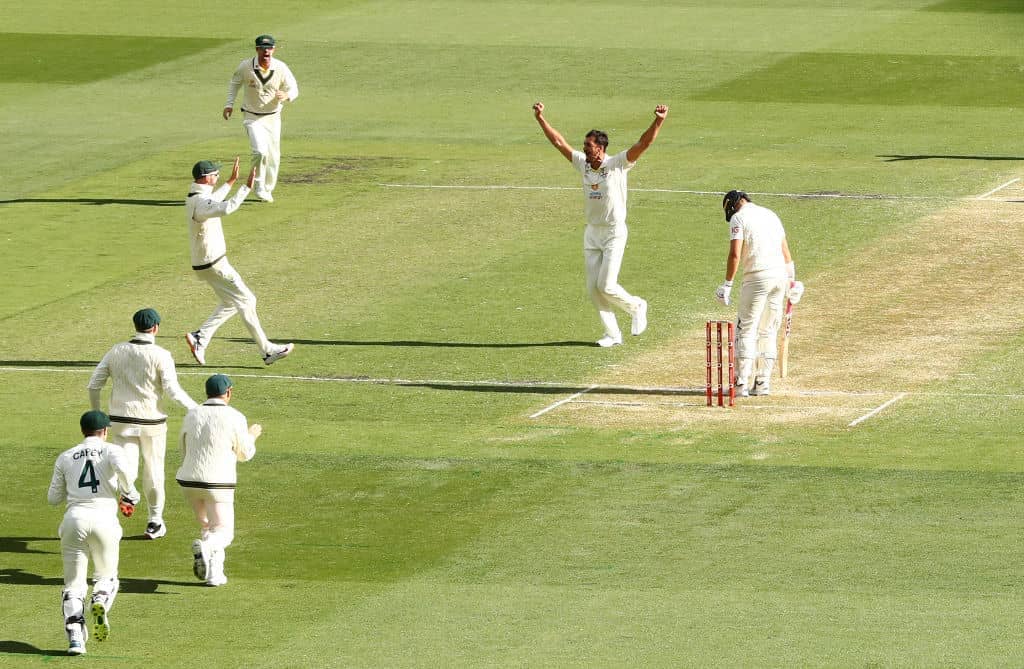England’s wretched performance in the Ashes – which saw the side lose three tests and so the series to Australia last week – has been more abject than even the most inspired pessimist could have imagined.
No sane observer expected England to win against Australia, but to lose the five match series little more than two days into the third test was a pitiful show.
Inevitably, even as England continue to play the fourth test this week, there have been calls for a cricketing inquest. The standard of the domestic game, the structure of the English season and England’s pivot towards the one day and T20 formats are all expected to be blamed for the woeful performance.
But the official pathologists examining England’s corpse should focus on more immediate causes of death: England’s inept bureaucracy, blinkered planning, and the team’s complete overreliance on data.
Data has become a graven image in professional cricketing circles. Statistics aren’t a bad thing in themselves, but the problem is how they’re being used in the game. Data – uninterrogated, aggrandised, and applied to completely alien contexts – has ended up determining England’s tactics and selection at the expense of common sense.
This was woefully evident before a ball of the Ashes had been bowled. Although driving rain had meant that England’s two practice matches in Brisbane were aborted, the team failed to account for the change in conditions. The past stats showed that in Brisbane bowlers who were good on firm, bouncy ground did better. That the first Ashes test would instead be played on a surface which was moist and grassy was irrelevant to the number crunchers. Following a blueprint devised 10,000 miles away, England picked neither Stuart Broad nor James Anderson for the first test – England’s all-time leading wicket-takers – who were ideal bowlers for a grassy wicket.
England’s performance in Brisbane was given a degree of respectability by Mark Wood – a loveable, turbo-charged Geordie. Wood is the only player England have who can bowl fast. Really fast. Break your finger or knock-you-out kind of fast. He hit the batsmen on the chest, on the elbow, and made the Aussies back away from his deliveries like they were being confronted by a Doberman.
In the end though Wood’s performance wasn’t enough. In fact, England were so easily beaten in the first test that in Australia’s second innings he only had the chance to bowl one ball. Inexplicably though, England’s head coach Chris Silverwood – sure to be discharged later this month – rested Wood for the second match, which England had to win to have any hope of reclaiming the Ashes. Silverwood defended his decision by arguing that the Ashes is ‘a marathon not a sprint.’ Steve Harmison, a former England fast bowler, rebuked Silverwood succinctly: ‘It’s a sprint, mate. The Ashes is only a long series if you’re still in it’, adding that ‘England could be out of the Ashes by lunchtime on Boxing Day.’ He was right. By the time Wood was next on the pitch hurling his 93mph missiles, England had all but lost the series.
Overseeing all this pseudo-science and strategic myopia is the England and Wales Cricket Board (ECB), the governing body of English cricket. It’s led by Tom Harrison, a CEO who might be a whizz at negotiating TV rights, but appears to be out of his depth when it comes to the game itself. Despite there being 62 Covid related job losses at the ECB and England’s dismal performance in Australia, Harrison is set to get the lion’s share of a £2.1 million bonus this year.
Mr Harrison doesn’t pick the team, but he does approve the coach. And in Chris ‘Spoons’ Silverwood, he and managing director Ashley Giles got it terribly wrong. Silverwood was excellent for a brief spell coaching Essex, but it was hubris to think that his experience running a successful club in a sub-par league was enough to take the national side to victory. After losing the third test in Melbourne, Silverwood’s team chalked up a ninth loss in 2021 – a record for the most defeats in a calendar year.
England’s miserable performance in the Ashes was affected by some conditions outside of the team’s control. Their practice matches were called off because of downpours and the unrelenting quarantines must have been bad for morale. But Australia’s preparations were hardly any better. And while England played 12 test matches in 2021 before the Ashes, Australia played just two – and hadn’t played since January.
England haven’t won a test series against Australia since 2015. On this occasion, it took just over ten days for England to lose the Ashes. Now that’s a stat that needs properly analysing.






Comments